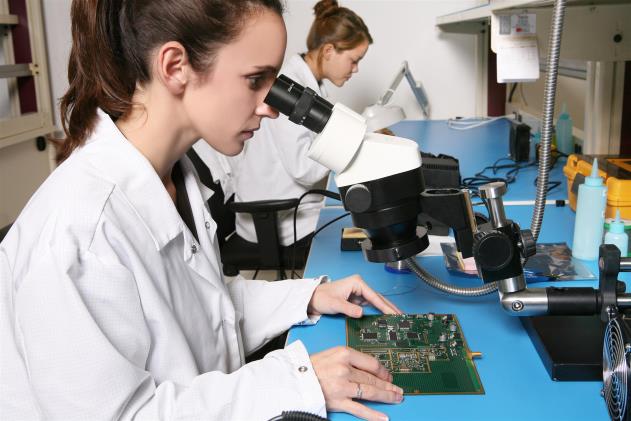If you are interested in pursuing a career in health care that involves working in a laboratory setting, you may want to consider becoming a medical laboratory technician (MLT). MLTs are professionals who perform various tests and analyses on biological samples, such as blood, urine, and tissue, to help diagnose and treat diseases. MLTs work under the supervision of medical laboratory technologists, physicians, or laboratory managers, and they play a vital role in the health care system. In this article, we will explain what MLTs do, what are the requirements and benefits of becoming an MLT, and how to start your career as an MLT.
What Do Medical Laboratory Technicians Do?
MLTs are responsible for collecting, preparing, and testing specimens from patients, using various laboratory instruments and techniques. They follow standard procedures and protocols to ensure the accuracy and reliability of the test results. They also record and report the test results to the appropriate health care providers, such as doctors, nurses, or pharmacists. Some of the common tests and analyses that MLTs perform include:
- Hematology: This involves testing the blood cells and components, such as red blood cells, white blood cells, platelets, hemoglobin, and hematocrit, to detect abnormalities, infections, anemia, leukemia, or other blood disorders.
- Chemistry: This involves testing the chemical substances and levels in the blood, such as glucose, cholesterol, electrolytes, hormones, enzymes, and drugs, to assess the organ function, metabolism, nutrition, or medication effects of the patients.
- Microbiology: This involves testing the microorganisms, such as bacteria, viruses, fungi, and parasites that cause infections and diseases, such as strep throat, urinary tract infection, tuberculosis, or malaria. MLTs use various methods, such as culture, staining, microscopy, and molecular techniques, to identify and isolate the microorganisms and determine their sensitivity to antibiotics or other treatments.
- Immunology: This involves testing the immune system and its response to foreign substances, such as allergens, antigens, or antibodies, to diagnose and monitor immune disorders, such as allergies, autoimmune diseases, or immunodeficiency. MLTs use various methods, such as serology, immunofluorescence, or immunoassay, to detect and measure the immune reactions and components.
- Transfusion medicine: This involves testing the blood type and compatibility of donors and recipients for blood transfusion, as well as screening the blood for infectious agents, such as HIV, hepatitis, or syphilis. MLTs use various methods, such as agglutination, coagulation, or molecular techniques, to ensure the safety and efficacy of the blood transfusion.
MLTs may also perform other tests and analyses, such as cytology, histology, molecular biology, genetics, toxicology, or urinalysis, depending on their specialty and the type of laboratory they work in.
What Are the Requirements and Benefits of Becoming a Medical Laboratory Technician?
To become an MLT, you need to have a high school diploma or equivalent, and complete a postsecondary program in medical laboratory technology or a related field. The program usually takes two years and leads to an associate degree or a certificate. The program covers the theoretical and practical aspects of laboratory science, such as anatomy, physiology, microbiology, chemistry, hematology, immunology, quality control, laboratory safety, and instrumentation. The program also includes a clinical practicum, where you gain hands-on experience in a real laboratory setting.
After completing the program, you need to obtain a license or certification, depending on the state or employer requirements. The license or certification demonstrates your competence and professionalism as an MLT, and may increase your employment and advancement opportunities. You can obtain the license or certification from various organizations, such as the American Society for Clinical Pathology (ASCP), the American Medical Technologists (AMT), or the National Credentialing Agency for Laboratory Personnel (NCA).
Becoming an MLT has many benefits, such as:
- Job satisfaction: As an MLT, you can enjoy a rewarding and meaningful career, as you contribute to the health and well-being of the patients and society. You can also experience personal and professional growth, as you learn new skills and knowledge, and face new challenges and opportunities.
- Job security: As an MLT, you can benefit from a stable and high-demand career, as the healthcare industry continues to grow and expand. According to the U.S. Bureau of Labor Statistics, the employment of MLTs is projected to grow 7 percent from 2021 to 2031, faster than the average for all occupations. The aging population, the increasing prevalence of chronic diseases, and the advances in laboratory technology are some of the factors that drive the demand for MLTs.
- Job flexibility: As an MLT, you can have a flexible and diverse career, as you can work in various settings, such as hospitals, clinics, laboratories, research institutes, public health agencies, or pharmaceutical companies. You can also work in different shifts, such as day, evening, night, or weekend, depending on your preference and availability. You can also specialize in different areas of laboratory science, such as hematology, chemistry, microbiology, immunology, or transfusion medicine, depending on your interest and expertise.
How to Start Your Career as a Medical Laboratory Technician?
If you are interested in starting your career as an MLT, here are some steps you can take:
- Research the career: Before you decide to pursue a career as an MLT, you should do some research and learn more about the role, the requirements, the benefits, and the challenges of being an MLT. You can use various sources, such as online articles, books, podcasts, or videos, to gain more information and insights about the career. You can also talk to current or former MLTs, or visit a laboratory, to get a firsthand perspective and experience of the career.
- Enroll in a program: Once you have decided to become an MLT, you should enroll in a postsecondary program in medical laboratory technology or a related field. You should look for a program that is accredited by the National Accrediting Agency for Clinical Laboratory Sciences (NAACLS), as this ensures the quality and credibility of the program. You should also consider the cost, duration, location, curriculum, and reputation of the program, and choose the one that best suits your needs and goals.
- Obtain a license or certification: After completing the program, you should obtain a license or certification, depending on the state or employer requirements. You should prepare for the license or certification exam, which may cover topics such as laboratory operations, specimen collection and processing, test performance and interpretation, and professional ethics and standards. You should also maintain your license or certification by completing continuing education or professional development courses, as required by the state or organization.
- Apply for a job: Once you have obtained your license or certification, you are ready to apply for a job as an MLT. You should create a resume and a cover letter that highlight your education, skills, experience, and achievements as an MLT. You should also search for job openings in various sources, such as online job boards, newspapers, or networking events, and apply for the ones that match your qualifications and interests. You should also prepare for the job interview, where you can demonstrate your knowledge, skills, and personality as an MLT.
Conclusion
Medical laboratory technicians are essential members of the health care team, who perform various tests and analyses on biological samples, to help diagnose and treat diseases. Becoming an MLT requires a high school diploma or equivalent, and a postsecondary program in medical laboratory technology or a related field. It also requires a license or certification, depending on the state or employer requirements. Becoming an MLT has many benefits, such as job satisfaction, job security, and job flexibility. If you are interested in becoming an MLT, you should research the career, enroll in a program, obtain a license or certification, and apply for a job.








